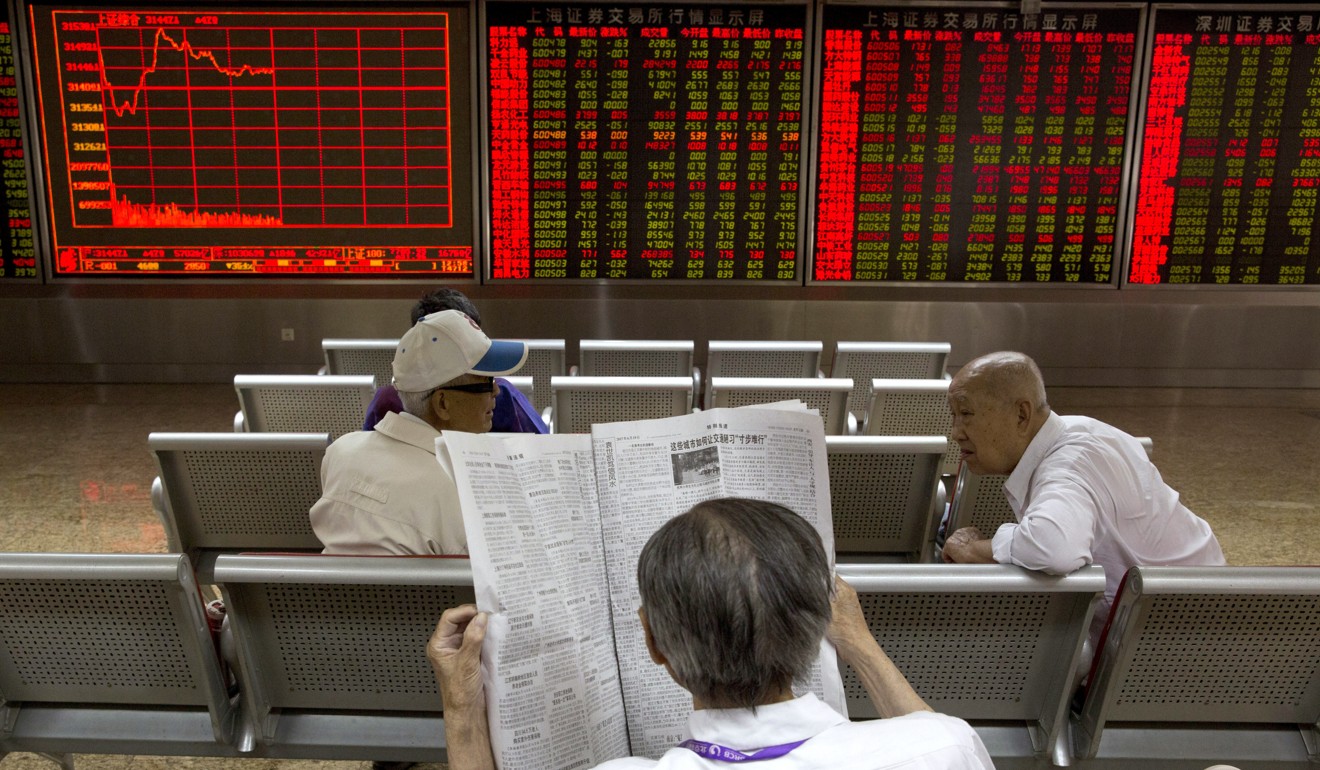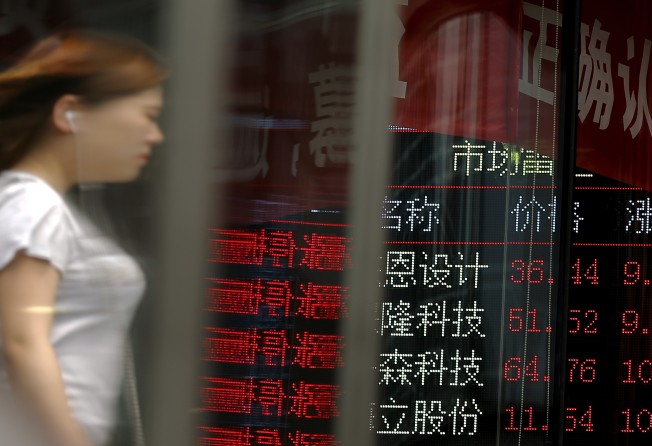
MSCI says Chinese regulator mulls over raising Stock Connects’ daily quotas
Foreign investors currently restricted to buying a combined US$3.8bn of A-shares daily, via the two Stock Connect trading links with Hong Kong

MSCI, the global index compiler, says China’s securities regulator may increase or even scrap the current daily cap on foreign purchases of mainland shares altogether, after it added the nation’s US$7 trillion stock market to two of its benchmark indexes.
Chia Chin Ping, MSCI’s managing director, said the China Securities Regulatory Commission (CSRC) is actively looking at the quota issue, in which foreign investors are restricted to buying a combined net 26 billion yuan (US$3.8 billion) of A-shares daily via the Shenghai and Shenzhen Stock Connect trading links with Hong Kong exchange.
“We have discussed the topic with the CSRC,” he said in an e-mailed interview.
“We believe the CSRC is actively looking into it and discussing it with relevant regulatory bodies in China and Hong Kong.”
MSCI announced last week it was adding Chinese shares to its benchmarks for the first time, but issues including restrictions on buying by foreign investors and regulator’s pre-approval of derivative products still prevent mainland equities from having a prominent place in emerging markets.

MSCI will initially include only 5 per cent of the free-floating shares of a select 222 Chinese companies in its emerging-markets index, with a 0.73 per cent weight in it upon implementation in a year’s time.
Even the 5 per cent inclusion will happen in two steps, one taking place in May next year and a second in August, according to MSCI.
But Chia said the two-step introduction could be rolled into one, should the daily quota of 13 billion yuan each for the two stock trading links with Hong Kong be abolished or raised significantly before the scheduled inclusion date.
Jing Ulrich, managing director and vice-chairman, Asia Pacific at JPMorgan Chase, expects the quota to be scrapped within three years, as the inclusion in MSCI’s indices should boost demand for mainland equities from overseas investors.
“China would respond to the demands of foreign investors to invest in A-shares,” she said in a panel discussion at the three-day World Economic Forum in Dalian on Tuesday. “This would mean the country would gradually lift more restrictions on foreign investors buying A-shares.”
On the night of the MSCI announcement last Wednesday, CSRC’s vice chairman Fang Xinghai hinted in an interview with China Central Television the regulatory was mulling over expanding the current daily quota. Major overseas financials derivatives linked to underlying mainland stocks, however, will still need the approval of the Chinese regulator.
The companies being included in the MSCI’s indexes, meanwhile, have quickly turned favourite targets for investors.
The CSI 300 Index, which covers almost 80 per cent of the weighting of the eligible 222 companies, rose to a 17-month high this week.
Brokerages including Sinolink Securities and UBS Group estimate as much as US$15 billion will be flowing to mainland markets based on its current proportion in the MSCI Emerging-Market Index. Global funds worth US$10.5 trillion track MSCI indexes for their portfolios currently, with US$1.6 trillion following its emerging-markets gauge.